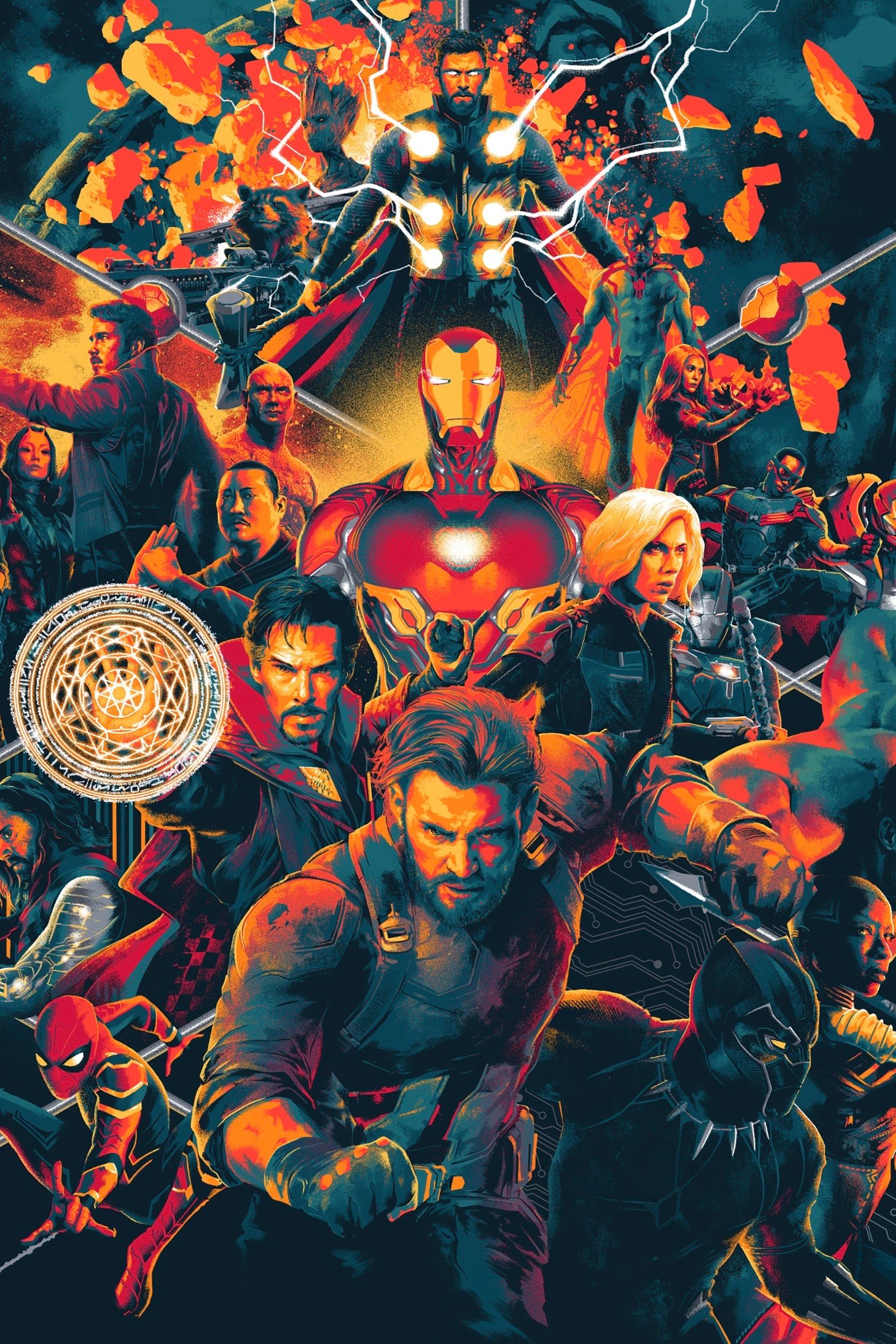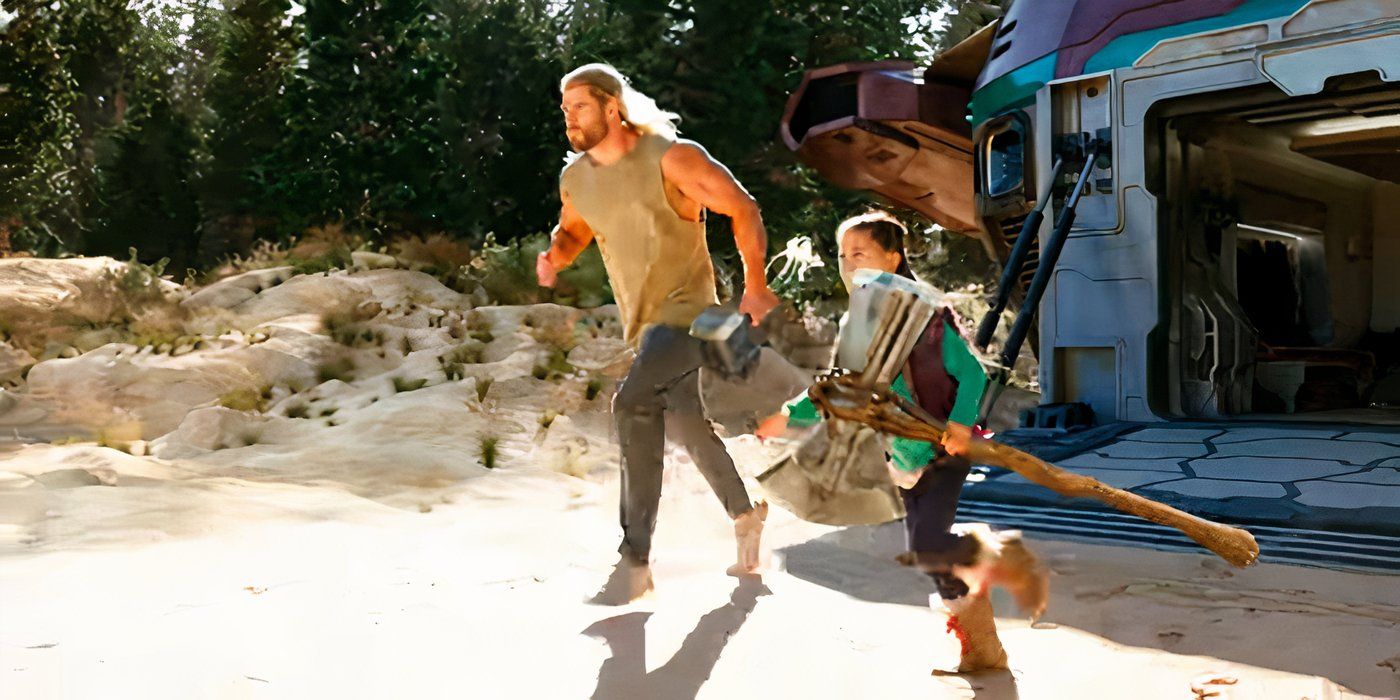14 years after Thor’s MCU debut in the original Thor movie, I’m still sad the franchise seemed to accidentally sabotage an effective way that the story of one of its most wasted villains could have been retrospectively improved. As one of the MCU’s oldest heroes – both in a real-world sense, and in terms of their in-universe age in the MCU timeline – Thor is naturally one of the most important protagonists in Marvel’s movie franchise. However, he’s also a character who has had a not strictly straightforward path to the present day, having faced several curveballs to say the least.
This is true when it comes to Thor’s own personal arc, and when looking at the reception to the movies that star the God of Thunder, which have often gotten some very mixed results in terms of the way they handle the hero and adapting his comic source material. This latter idea appears to have played a big part in one of the most controversial Thor villain depictions in the MCU’s roster – which is made all the more complex because one way of adding later significance to said antagonist’s story was seemingly inadvertently thwarted.
Gorr Is Arguably The MCU’s Most Wasted Thor Villain
The Thor MCU movie roster had a varied range of successes with its villains, simultaneously launching Loki into major success and an eventual hero redemption arc, while also introducing figures like Malekith to much more divisive reception. Of the four Thor movies, the villain who faces the most complicated and wasted fate is arguably that of Gorr, who is one of Thor’s newer major villains in the comics, and whose prominence in the on-page world raised some considerable hype about how the MCU’s blockbusters could handle the character.
Gorr first appeared in the comics in 2012’s Thor: God of Thunder #2.
With The Dark Knight’s Batman Christian Bale cast in the role, the stage seemed well and truly set for Gorr and Thor to face off against one another in a movie that adapted the antagonist at the top of his game. Unfortunately, this doesn’t quite come through in Thor: Love & Thunder, with the dramatic core of Gorr’s tragic backstory being only addressed briefly, and the full extent of his god-killing efforts and mission glossed over, undermining him as an imposing antagonist and one of Thor’s greatest threats.
Gorr was already perhaps an awkward fit into the more comedically focused Thor: Love & Thunder as one of the darker and more grim enemies that Thor faces, leaving moments of tonal whiplash as the story attempts to balance its more somber moments with its generally otherwise playful approach to the story. With Gorr dying just after making his wish to bring his daughter Love back from the dead, it seems his MCU story starts and ends with Thor: Love & Thunder, which naturally limits the extent with which further installments can follow up on the character and his arc.
The MCU’s Thor Set Up Means It’s Impossible To Properly Use The Best Way To Make Gorr’s Story Matter After His Death
Gorr is able to have a massive posthumous significance to Thor’s story in Marvel’s comics, with the lingering effects of the character and his story leading Thor to become unworthy of Mjolnir for a period of time. This began after Nick Fury Sr. whispered something unheard but clearly significant to the God of Thunder in Marvel’s 2014 Original Sin #7, which generated a years-long mystery as fans waited and wondered about whether they’d ever learn what Fury could have said that was so life-changing for the Odinson that he became unable to wield his iconic hammer.
This was revealed 3 years later in Unworthy Thor #5, wherein it’s unveiled that the words Fury whispered were very simple ones: “Gorr was right.” Given the context that Fury says this after revealing he’s been secretly neutralizing threats that not Marvel’s heroes or SHIELD knew about – and given he’s gained the Watcher’s essentially omnipotent knowledge, which he demonstrates to Thor before telling him this – the reveal that Fury believes Gorr was right about the gods being a corrupt force understandably throws Thor, who is established as at least partially worrying this was true beforehand.
The potential for the MCU to roughly adapt this storyline in some capacity could have allowed for Gorr’s somewhat controversial MCU story to still get some weight to it further down the line, adding lasting resonance to his introduction and retroactively improving it in the big picture. As it stands, though, this is effectively impossible for the MCU to adapt in a way that keeps this storyline’s significance – in part because the best time for it would have been before Jane Foster fixed the hammer and became Mighty Thor, since Original Sin kicked off this story in the comics also.
The concept of Thor being unworthy or regarding himself as being unworthy of wielding Mjolnir has been the subject of much focus in the MCU’s history, with Thor initially being unable to wield Mjolnir after Odin sends him to Earth, and then going through aspects of his “unworthy” arc in Avengers: Endgame while struggling to deal with the grief, guilt, and loss of being unable to defeat Thanos previously. Add in the fact that Thor only just started wielding Mjolnir again in Thor: Love & Thunder, and it’s clear this story is currently impossible to use properly for the MCU.
Love Means Gorr’s Story Could Still Matter In The MCU, Just In A Different Way
With Gorr dead and the MCU’s ability to adapt his significance into an unworthy Thor arc scuppered, it seems likely this is one path that will have to not be explored in the franchise, short of something like a full reboot happening – and even then, it’s likely a reboot of Thor’s story wouldn’t want to rehash his most recent movie villain anytime soon. That said, the fact Thor: Love & Thunder brings the titular MCU-exclusive Love into the franchise means the MCU could still well make Gorr’s story significant in a very different way.
With Love having not existed in Marvel’s comics, her MCU debut – and the setup of her now having some very considerable powers thanks to her bond with Eternity – opens the door for Gorr’s impact on the franchise to basically go in the opposite direction, and resonate in the franchise via the importance of his final act, which was to bring his daughter back and entrust her to Thor himself. Though it’s an approach that certainly lacks the haunting elements of adapting the comic angle, I think this could hopefully still pay off for the franchise in the long run by bringing a new hero into its world.

- Cast
-
Robert Downey Jr., Chris Evans, Scarlett Johansson, Samuel L. Jackson, Jeremy Renner, Chris Hemsworth, Mark Ruffalo, Edward Norton, Paul Rudd, Tom Holland, Tom Hiddleston, Anthony Mackie, Cobie Smulders, Brie Larson, Chadwick Boseman, Sebastian Stan, Chris Pratt, Dave Bautista, Zoe Saldana, Bradley Cooper, Vin Diesel, Pom Klementieff, Josh Brolin, Karen Gillan, Clark Gregg, Paul Bettany, Don Cheadle, Benedict Cumberbatch, Evangeline Lilly, Simu Liu, Aaron Taylor-Johnson, Angelina Jolie, Kit Harington, Salma Hayek, Richard Madden, Barry Keoghan, Gemma Chan, Ma Dong-seok, Brian Tyree Henry, Kumail Nanjiani, Lauren Ridloff, Lia McHugh, Jonathan Majors


